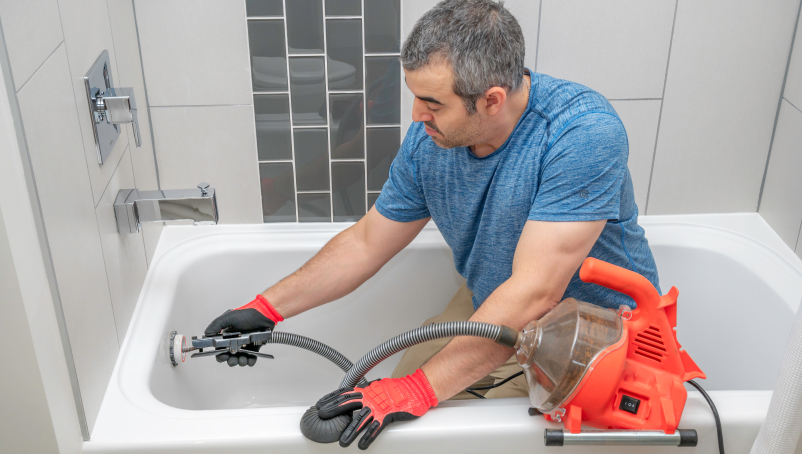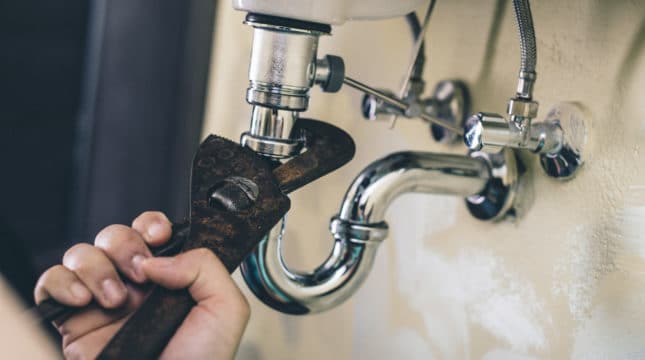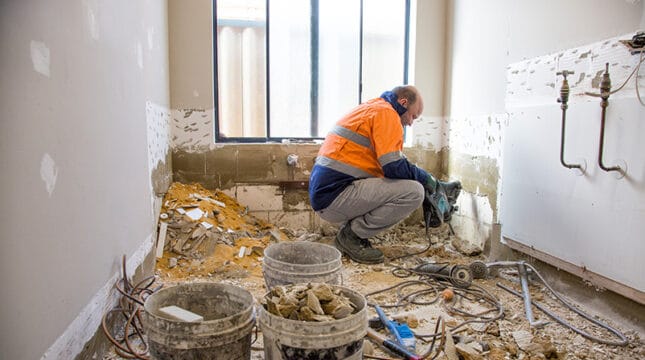Do you need a Maryland plumbing license to work as a plumber?
Yes, you need a license to work as a plumber in Maryland. Most of the state falls under the Maryland State Board of Plumbing’s rules. However, Baltimore County and Washington Suburban Sanitary Commission (WSSC) areas have their own licensing requirements.
Insider tip: Before you start job hunting, figure out exactly where you want to work so you can get the proper license from the start.
Insurance requirements for a Maryland plumbers license
Insurance isn’t the most exciting topic, but it’s like a good set of tools — you don’t want to work without it. While Maryland only requires master plumbers to carry specific coverage, all plumbing professionals should consider getting plumbing insurance.
Workers’ Compensation insurance
Maryland law requires you to buy workers’ compensation insurance if you have employees. It helps cover medical costs and lost wages if someone gets hurt on the job.
Learn more about workers’ compensation for contractors.
General Liability insurance
The Maryland State Board requires licensed master plumbers to have $300,000 in general liability insurance and $100,000 in property damage liability. It helps cover the most common non-employee injuries and property damage, like if you accidentally flood a customer’s basement or someone trips over your tools.
Learn more about general liability insurance for contractors.
Commercial Property insurance
Commercial property insurance helps protect your office or shop, including your tools and equipment, from covered events such as fire, theft or wind storms. This coverage can include your building structure, products and inventory, furniture and the equipment that you use for work.
Business Owner’s Policy
A business owner’s policy, or BOP insurance, provides broad coverage of general liability and commercial property policies combined in a single, more cost-efficient bundle. That means it can help cover damage that you or your employees may inadvertently cause to another person’s property and help protect your business inventory in the event of a fire or other covered event.
Tools and Equipment insurance
Tools and equipment insurance helps replace or repair your gear if it’s damaged, stolen, or lost. (And we all know quality plumbing tools aren’t cheap.)
Commercial Auto insurance
Commercial auto insurance helps protect your work vehicles and covers accidents while driving between job sites. In Maryland, auto insurance is mandatory. Coverage minimums are:
- $30,000 for bodily injury
- $60,000 for two or more people
- $15,000 property damage
How to get a plumbing license in Maryland
Three different jurisdictions oversee MD plumbing licenses. While the main requirements — experience, training, testing and license fees — are consistent, each area has specific additional qualifications.
Every plumber starts their career at the apprentice level. The difference is where you submit your apprentice license application:
You don’t need to be enrolled in an apprenticeship program to get licensed, but you need the apprenticeship license before you can log hours of training and work experience.
Journeyman plumber license
The requirements get more specific for each licensing authority when you reach the Journeyman Plumber level. They all agree on the basics: you’ll need four years of apprenticeship experience and backflow prevention certification. But each has additional boxes you need to check off:
- The State Board wants you to complete 7,500 training hours and 32 hours of backflow prevention training (under the direction and control of a licensed master plumber) before submitting your application through the Maryland Department of Labor.
- Baltimore County needs to see 7,500 documented experience hours.
- WSSC asks for three reference letters, including one from your supervising master plumber. The exam application and reference forms are in PSI’s guide to WSSC plumbing licensure.
Insider tip: Start collecting your journeyman license documentation early. Every timesheet, training certificate, and work record will come in handy when you’re ready to apply.
Master plumber license
A master plumber is the highest level license for Maryland plumbers. It generally requires two years as a journey plumber and up-to-date backflow certification, no matter where you apply. But here’s how their other requirements differ:
- The State Board requires 3,750 hours of experience (under the control and direction of a licensed master plumber) and a certificate of insurance ($300,000 general liability and $100,000 property damage).
- Baltimore County looks for 3,750 documented hours of experience.
- WSSC wants three reference letters from master plumbers.
Insider tip: When gathering those master plumber reference letters, reach out early. A letter from someone who can speak to your skills and work ethic carries more weight than a quick signature.
How long does it take to get your MD plumbing license?
Once you’ve got all your ducks in a row, the state usually takes about a month to process your application. But remember – that’s just the paperwork part. The real-time investment is in your years of experience to qualify for each license level.
Maryland plumbing license requirements for renewal
After conquering how to get a plumbing license in Maryland, you’ll need to keep it current. You’ll renew your current license in Maryland every two years from the date it was issued. The Board sends renewal notices about 60 days before your expiration date, giving you plenty of time to handle the paperwork.
Does Maryland have plumbing license reciprocity?
Maryland plumbers can feel like they’re going back and forth with three different licensing authorities. But there’s good news — Maryland offers reciprocal license agreements.
The State Board has reciprocal agreements with the state of Delaware (for master plumber/gas fitter licenses), WSSC, and Baltimore County. For WSSC or Baltimore County reciprocity, you’ll need to hold both plumbing and gas portions of your license.
Baltimore County reciprocates with both the State of Maryland and the WSSC. And if you have a WSSC plumbing license, they reciprocate with licenses from Baltimore County, the State of Maryland, and the State of Virginia.





